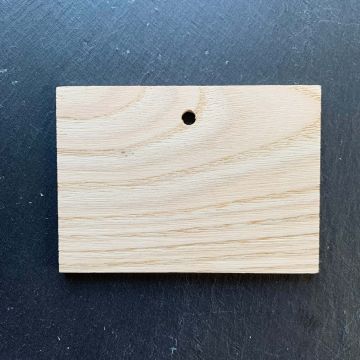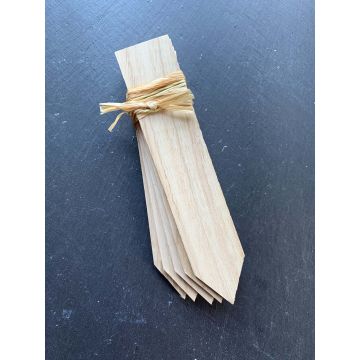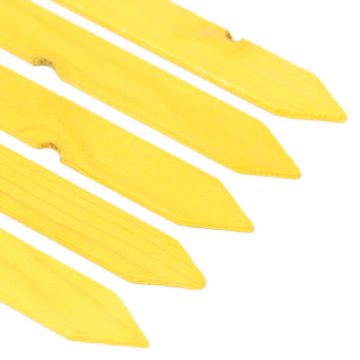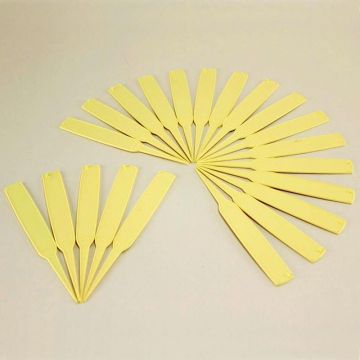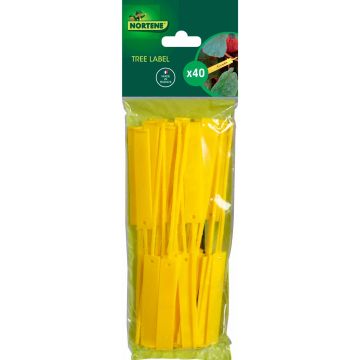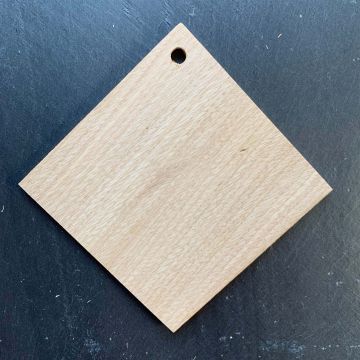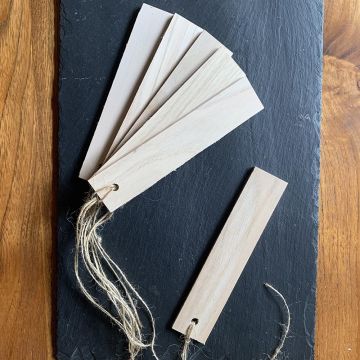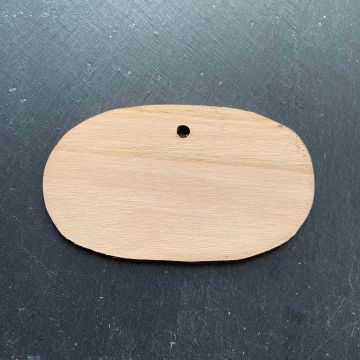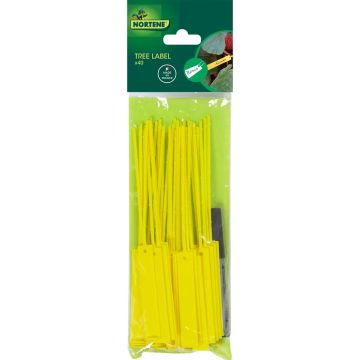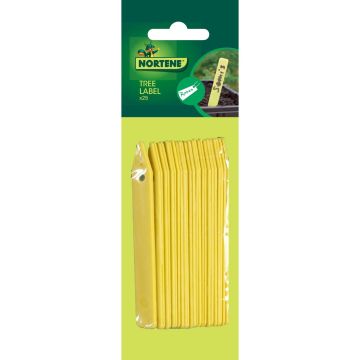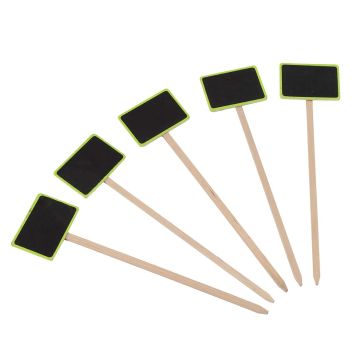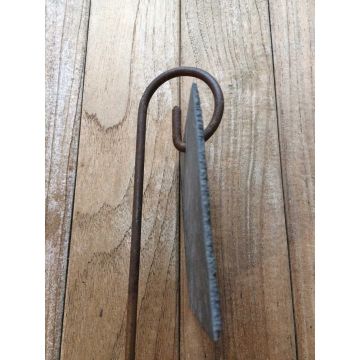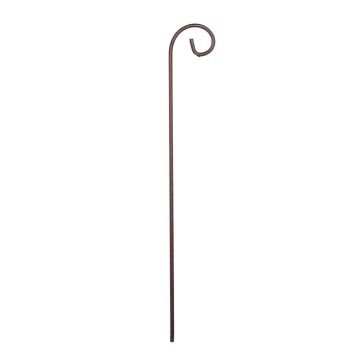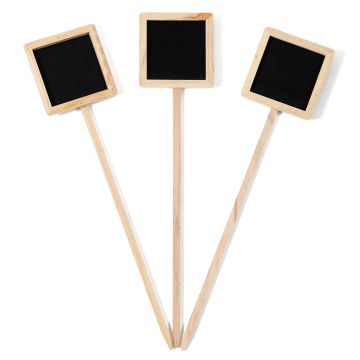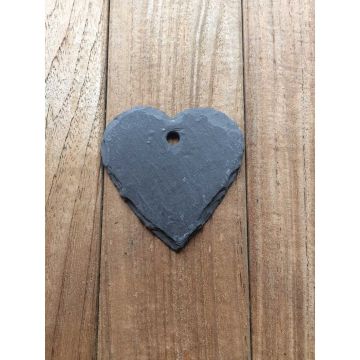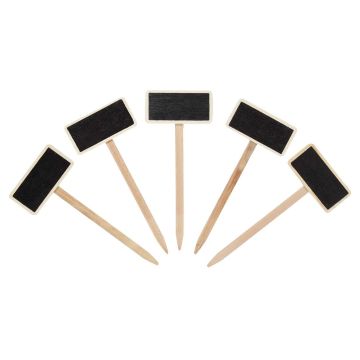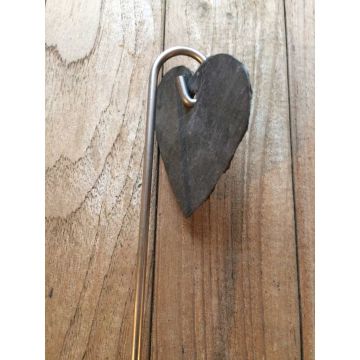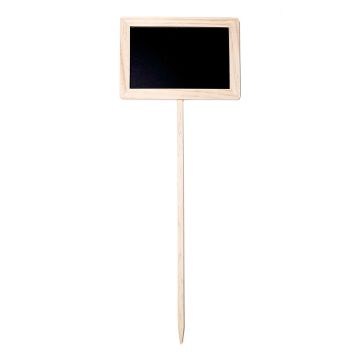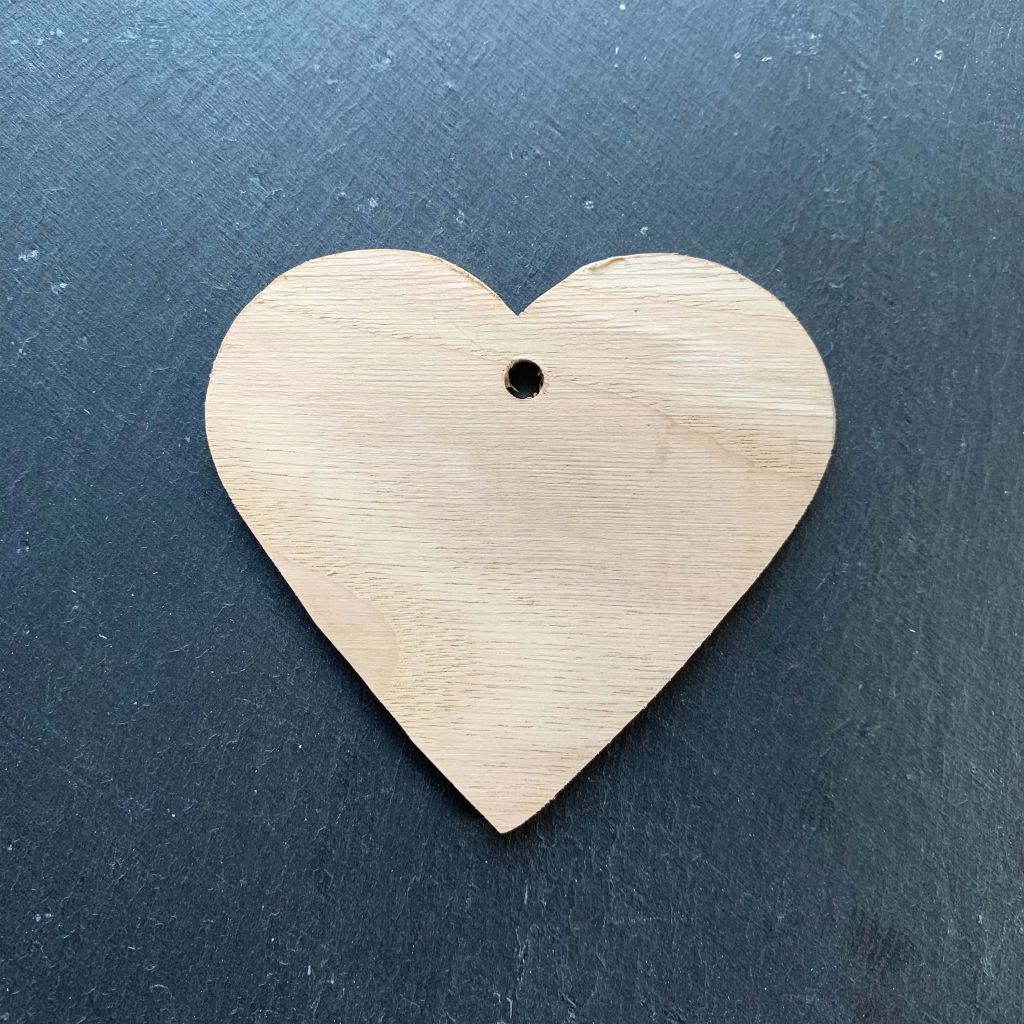

Heart-shaped hanging label made of chestnut wood
Heart-shaped hanging label made of chestnut wood
This item cannot be shipped to the selected country
Delivery charge from €5.90
Delivery charge from €5.90
Delivery charge from €5.90
More information
Schedule delivery date,
and select date in basket
We guarantee the quality of our plants for a full growing cycle, and will replace at our expense any plant that fails to recover under normal climatic and planting conditions.
From €5.90 for pickup delivery and €6.90 for home delivery
Express home delivery from €8.90.
From €5.90 for pickup delivery and €6.90 for home delivery
Express home delivery from €8.90.
From €5.90 for pickup delivery and €6.90 for home delivery
Express home delivery from €8.90.

This small heart-shaped label combines an original design with the nobility of natural chestnut wood. Made using traditional methods in Brittany, this lovely model has been perforated to allow for the attachment of a string or label holder. Decorative and high-quality, it is also very useful for remembering the name of each plant in the garden, greenhouse, terrace, or for personalizing a floral arrangement to give as a gift.
Seed packets, as well as printed bands and labels provided when purchasing plants, often deteriorate quickly under the combined action of sun and rain, with the names of the plants becoming quickly illegible. On the other hand, these labels distributed by Comptoir Botanique, made from chestnut wood known for its hardness and natural resistance to wood-boring insects, brave the heat, bad weather, and the passage of time. This lovely heart-shaped model is a thin plaque of brown wood, randomly marked with darker veins. The name of the plant, any information, or message can be written on it using a marker or graphite pencil before placing it. Then simply thread a string through the provided hole to hang it or place it on a beautiful metal or bamboo label holder that can be strategically planted. Chestnut is an environmentally friendly and fully compostable material.
The company 'Comptoir Botanique', located in Locquénolé in northern Finistère, entrusts over 80% of its production to ESAT (Establishments and Services for Assistance through Work), a collaboration it has been engaging in for several years.
Garden labels are very useful accessories that can also be elegant or charming to showcase plants and gardens. In the vegetable garden, it is essential to identify the sown lettuce, radishes, or carrots, as well as the varieties of melons or squash. In ornamental gardens, some perennials or bulbs disappear underground for a good part of the year and could be accidentally dug up with a spade or pick if not marked. The collector of irises or grasses will appreciate being able to remember the names of the beautiful varieties they have planted. The enthusiast of rare plants for which there is no common name can, thanks to the label that comes to the aid of their memory, impress their amazed visitors with the Latin name of their latest acquisition. The plant marker label sometimes also plays an educational role in open gardens. Whether hung in the garden, in a pot, a flower box, or in a basket of plants and flowers, the natural wood label always has a small impact. Finally, naming a plant is an excellent way to awaken children's interest in nature, in all its diversity.
Tips
Detailed features
Other Wooden labels
This item has not been reviewed yet - be the first to leave a review about it.
Garden labels
Haven't found what you were looking for?
Hardiness is the lowest winter temperature a plant can endure without suffering serious damage or even dying. However, hardiness is affected by location (a sheltered area, such as a patio), protection (winter cover) and soil type (hardiness is improved by well-drained soil).

Photo Sharing Terms & Conditions
In order to encourage gardeners to interact and share their experiences, Promesse de fleurs offers various media enabling content to be uploaded onto its Site - in particular via the ‘Photo sharing’ module.
The User agrees to refrain from:
- Posting any content that is illegal, prejudicial, insulting, racist, inciteful to hatred, revisionist, contrary to public decency, that infringes on privacy or on the privacy rights of third parties, in particular the publicity rights of persons and goods, intellectual property rights, or the right to privacy.
- Submitting content on behalf of a third party;
- Impersonate the identity of a third party and/or publish any personal information about a third party;
In general, the User undertakes to refrain from any unethical behaviour.
All Content (in particular text, comments, files, images, photos, videos, creative works, etc.), which may be subject to property or intellectual property rights, image or other private rights, shall remain the property of the User, subject to the limited rights granted by the terms of the licence granted by Promesse de fleurs as stated below. Users are at liberty to publish or not to publish such Content on the Site, notably via the ‘Photo Sharing’ facility, and accept that this Content shall be made public and freely accessible, notably on the Internet.
Users further acknowledge, undertake to have ,and guarantee that they hold all necessary rights and permissions to publish such material on the Site, in particular with regard to the legislation in force pertaining to any privacy, property, intellectual property, image, or contractual rights, or rights of any other nature. By publishing such Content on the Site, Users acknowledge accepting full liability as publishers of the Content within the meaning of the law, and grant Promesse de fleurs, free of charge, an inclusive, worldwide licence for the said Content for the entire duration of its publication, including all reproduction, representation, up/downloading, displaying, performing, transmission, and storage rights.
Users also grant permission for their name to be linked to the Content and accept that this link may not always be made available.
By engaging in posting material, Users consent to their Content becoming automatically accessible on the Internet, in particular on other sites and/or blogs and/or web pages of the Promesse de fleurs site, including in particular social pages and the Promesse de fleurs catalogue.
Users may secure the removal of entrusted content free of charge by issuing a simple request via our contact form.
The flowering period indicated on our website applies to countries and regions located in USDA zone 8 (France, the United Kingdom, Ireland, the Netherlands, etc.)
It will vary according to where you live:
- In zones 9 to 10 (Italy, Spain, Greece, etc.), flowering will occur about 2 to 4 weeks earlier.
- In zones 6 to 7 (Germany, Poland, Slovenia, and lower mountainous regions), flowering will be delayed by 2 to 3 weeks.
- In zone 5 (Central Europe, Scandinavia), blooming will be delayed by 3 to 5 weeks.
In temperate climates, pruning of spring-flowering shrubs (forsythia, spireas, etc.) should be done just after flowering.
Pruning of summer-flowering shrubs (Indian Lilac, Perovskia, etc.) can be done in winter or spring.
In cold regions as well as with frost-sensitive plants, avoid pruning too early when severe frosts may still occur.
The planting period indicated on our website applies to countries and regions located in USDA zone 8 (France, United Kingdom, Ireland, Netherlands).
It will vary according to where you live:
- In Mediterranean zones (Marseille, Madrid, Milan, etc.), autumn and winter are the best planting periods.
- In continental zones (Strasbourg, Munich, Vienna, etc.), delay planting by 2 to 3 weeks in spring and bring it forward by 2 to 4 weeks in autumn.
- In mountainous regions (the Alps, Pyrenees, Carpathians, etc.), it is best to plant in late spring (May-June) or late summer (August-September).
The harvesting period indicated on our website applies to countries and regions in USDA zone 8 (France, England, Ireland, the Netherlands).
In colder areas (Scandinavia, Poland, Austria...) fruit and vegetable harvests are likely to be delayed by 3-4 weeks.
In warmer areas (Italy, Spain, Greece, etc.), harvesting will probably take place earlier, depending on weather conditions.
The sowing periods indicated on our website apply to countries and regions within USDA Zone 8 (France, UK, Ireland, Netherlands).
In colder areas (Scandinavia, Poland, Austria...), delay any outdoor sowing by 3-4 weeks, or sow under glass.
In warmer climes (Italy, Spain, Greece, etc.), bring outdoor sowing forward by a few weeks.

































